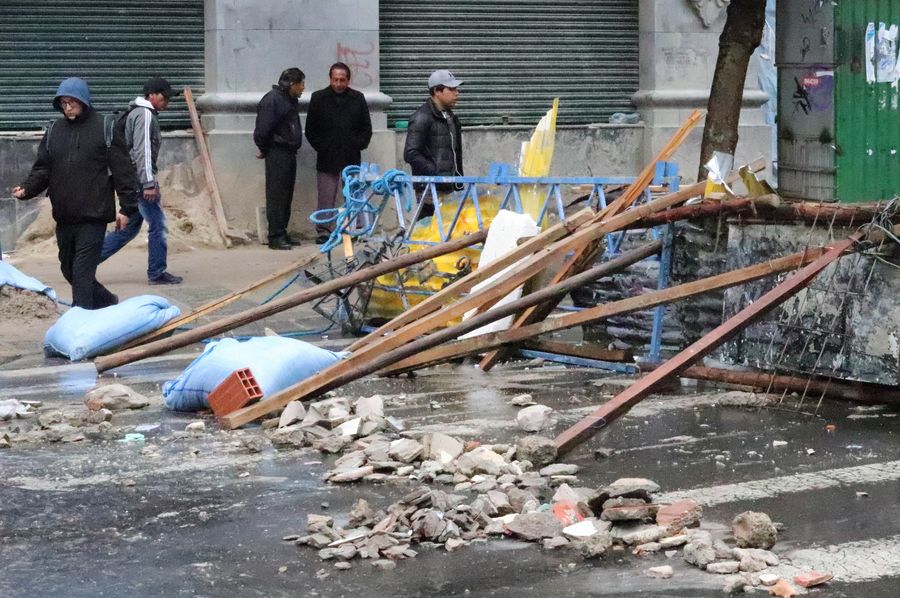
LA PAZ: Unrest in Bolivian cities are affecting food and fuel supplies, leading to shortages and price hikes.
Interior Minister Arturo Murillo told reporters the interim government was using airplanes to transport supplies to certain towns cut off by the roadblocks.
"We are spending what it takes on flights so the people won't go without supplies," he said.
The road blockings are affecting La Paz, El Alto, Cochabamba, Santa Cruz, Sucre, Potosi and Oruro, among other cities, according to TV news, which showed empty shelves or stands at local markets.
The roadblocks have been set up by supporters of former President Evo Morales, who resigned on Nov. 10.
In La Paz, Bolivia's administrative capital, prices of some basic foods have doubled, Xinhua reporters noticed when going shopping.
"A crate of eggs that cost some 21 bolivianos (3 U.S. dollars) has gone up to 50 (7 dollars)," said a housewife who gave her name as Marina.
A meat vendor who called herself Mery gestured to her empty stand.
"Before the unrest, a kilo of premium beef cost 40 bolivianos (5.6 dollars), now you have to pay 100 bolivianos (14 dollars). In the worst-case scenario, you can't even find any," said Mery.
Chicken products, from the cities of Santa Cruz and Cochabamba, have become scarce.
In a TV report, Cochabamba's traditional La Cancha market was showed with few fruits and vegetables for sale and several empty butchers' stands.
In the meantime, the Poultry Association in Cochabamba said it was unable to make deliveries of chicken and eggs to La Paz due to the roadblocks while calling on the Bolivian Air Force to rent it planes for shipping goods.
Several cities in western Bolivia were found to be short of liquefied petroleum gas for use by both households and industries.
On Sunday, police chief Rodolfo Montero said officials hoped to negotiate with Morales' supporters in El Alto who were blocking access to a state-owned oil facility, for resuming fuel supplies in the region.
In the meantime, public transit service is being cut back in La Paz and El Alto as some gas stations have run out of fuel.
Morales' supporters refuse to recognize the authority of Jeanine Anez, an opposition Senator who declared herself interim president after Morales resigned.
Bolivia has been plagued by anti-government protests since Morales won a fourth presidential term in the Oct. 20 elections. The opposition refused to recognize his victory, claiming fraud.
Morales announced his resignation on Nov. 10 after the military demanded his departure. He arrived later in Mexico, which offered him political asylum.
At a special session of the Senate on Nov. 12, without the presence of the members of the majority ruling party Movement Toward Socialism (MAS), Anez assumed the presidency of the Bolivian Senate, which allowed her to proclaim herself interim president of the country.
Betty Yaniquez, congressional leader from the MAS, has denounced Anez's self-proclamation as illegal.